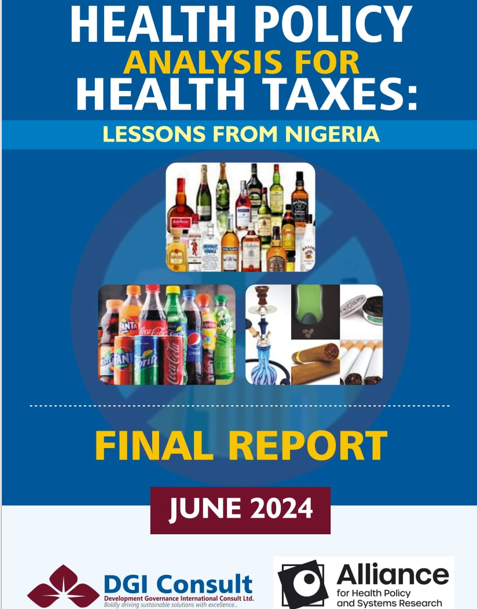Overview
This policy analysis appraises the status of Nigeria’s health tax policies, including the political economy of their design and implementation. It explores how taxes on harmful products like tobacco, alcohol, and sugar-sweetened beverages can both curb unhealthy consumption and generate much-needed revenue for public health initiatives. With 41 million annual global deaths from preventable NCDs, health taxes emerge as a powerful policy tool to safeguard public health and fund universal healthcare.
The study delves into the political, economic, and institutional factors shaping health tax policies in Nigeria. The policy analysis appraises existing policies, identifies the influence and interests of key stakeholders, and analyzes the barriers and enablers to effective health tax policy design and implementation. The findings highlight the need for strategic reforms to align Nigeria’s health tax framework with global standards, especially in terms of tax rates, types and structure and address gaps in enforcement and revenue allocation.
Packed with evidence-based recommendations, evidence from the analysis can serve as an essential resource for policymakers, public health advocates, and stakeholders aiming to strengthen Nigeria’s health system.

Comments are closed.